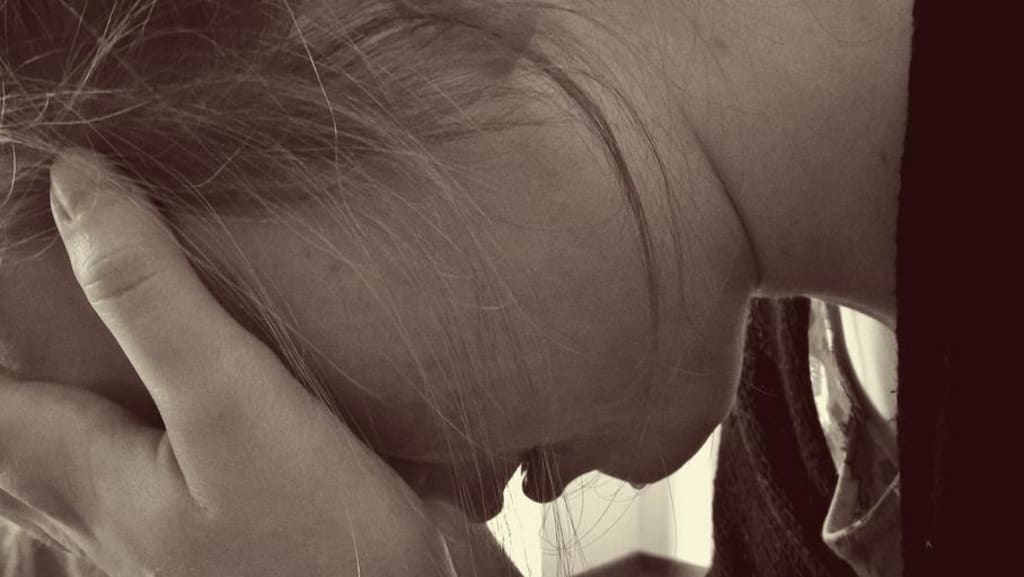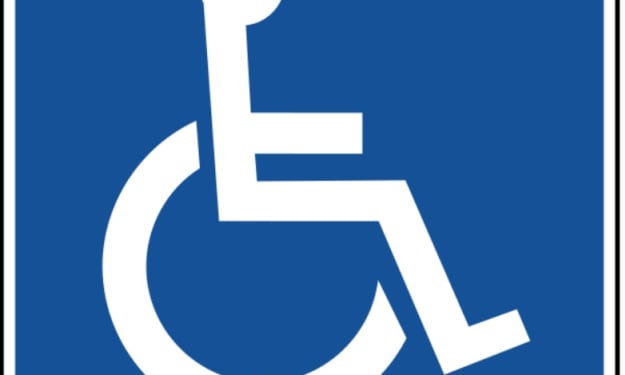The Suicide Attempt That Backfired
All I wanted was to get my parents' attention. But even a botched suicide attempt didn't work (and how it made me stronger).

I grew up in a house full of strangers: the only thing we truly had in common was our DNA. One brother was older by twelve years; my other brother was younger by three years.
My older brother didn’t have much to do with me, having a social life of his own. My mother doted on my younger brother. And Daddy was emotionally unavailable. I didn’t understand at the time why he detached himself from his family. It makes perfect sense to me these days as I’ve pretty much been walking in his shoes as of late.
As a result, I grew up alone among these strangers.
Growing up alone didn’t bother me much. I discovered at a young age my love of the written word. I was all for being left alone to do my reading and writing.
I grew up self-conscious and with a terrible lack of self-esteem. My mother made my clothes: a noticeable contrast to the store-bought fashions of my classmates. She also loved to play with my hair, forming it into all manner of curls, which, quite frankly, never looked good on me and with which I was never comfortable. Between the hair and the clothing, I had my fair share of ridicule at school (it’s now called bullying).
My father made it clear somewhere along the way that he preferred his daughter to be a svelte blue-eyed blonde. He would often put his arm around the waist of a slender young girl—the daughter of one of his friends, and, sometimes, someone I knew—and claim her as his “other” daughter.
What he got was an overweight daughter with mousy brown hair, unattractive by society’s standards. I'm sure he was disappointed.
I was a quiet child: an observant child. I knew/know my family better than they know me. We made dysfunctional function. I have often wondered—and still do—how on earth we could possibly be related. I’m sure the stork took a wrong turn at Albuquerque.
***
Having no social skills, I had no friends all through elementary and middle school. There were people with whom I was friendly, but I wouldn’t call them friends exactly. I was not one of the “cool” people: Translation: I didn’t have the right last name and my family didn’t have money. I grew up in a small town, where, if you had the right last name, you could eat your breakfast in the classroom among classmates who hadn’t had any breakfast.
As I entered my teens, my sense of isolation grew. Being introverted, I simply couldn’t make any connections with the other kids around me. At home, I felt pretty much invisible—except of course, when it came time to wash the supper dishes or do other chores.
By the time I reached thirteen years old in eighth grade, I felt completely... disposable. I wanted attention like a chocoholic’s insatiable craving for chocolate.
Though I attempted to get attention by being the “smart” one and the writer, it just didn’t work. And that’s when my feeble little mind determined suicide might be the answer.
It wasn’t that I wanted to die or make people feel bad because they had no idea what was going on with me. I was tired of being overlooked and ignored. I wanted to be noticed.
***
My father was a brick mason. He experienced back pain from lugging and cementing cement blocks in place all day. He had a prescription for back pain medication. Once his back pain stopped, he stopped taking the medication.
But no one threw the medication away.
I swiped that bottle of pills. There was about a half bottle left.
Between classes, I took the entire bottle.
It must not have been a very strong medication. I expected to, at least, pass out. I only experienced a little light-headedness.
And that was it. Not the desired effect I was hoping for. No one even noticed I had taken any pills.
Part of me was glad nothing happened. But a bigger part of me was disappointed. It left me with the feeling that if I had died, nobody would have cared (remember, I was thirteen: everyone is melodramatic at thirteen).
What to do to get the attention I so craved?
My solution was to write notes to a few teachers about my suicide attempt with the hope they would offer me some comfort, which was part of the attention I sought.
But that’s not what happened.
***
One day I was called into the school counselor’s office, because one of those trusted teachers had obviously informed them. It was then I learned my parents had been told about what I had done.
There was no discussion of the matter at home: not one word about it from either of my parents to this day.
I took some of my poetry in for the counselors to read. After skimming only a few lines, the counselor said, “I think I see a very lonely girl here.”
That was the extent of the counseling sessions. There was no delving into what was really bothering me: not getting enough attention at home and how much I hated my younger brother for taking my mother away from me; how alone and invisible I felt.
The solution the school and the counselors came up with was to stick me into a special needs class.
This was back in the seventies, and special needs wasn’t what it is today. It was also a time when mental health or emotional issues were best kept behind closed doors. I guess you could say it was the seventies’ society’s equivalent of “Don’t ask. Don’t tell;” it just pertained to mental health at the time.
The special needs classroom I was assigned to was no larger than a storage closet. There was a teacher’s desk, albeit a small one, and two students’ desks.
There was another student in this pint-sized classroom with me. To say he was different wouldn’t do him justice. I remember he wore glasses as thick as the bottom of Coke bottles. He walked through the halls, head down, avoiding eye contact whenever possible. He would sometimes run into people, but I never heard him apologize.
I also remember he was a gifted artist. He did several pieces for the high school library later on. I realize now, the student was probably autistic to some degree. In the seventies, autism was virtually unheard of and unknown.
***
I thought I was in for some one-on-one counseling. Maybe now I would be able to unload things that were on my mind.
Disappointed again.
The teacher gave me a task: help tutor the other student in math. Neither of us was happy about that.
I am familiar with the adage, “By helping others, you help yourself.” While I believe in that to a certain extent, I also believe that you cannot help others when you yourself need help.
The dutiful student, I did what I was told. I tried to help the other student with math. It was a study in frustration for both of us. But we muddled through.
I remember there were days when the teacher was absent. But no one came around to tell us she wouldn’t be in the storage-room-classroom that day. We were left to our own devices.
The other student didn’t feel the need to stay tied to the classroom. He waited a few minutes until he was sure the teacher wouldn’t show. He’d take off, leaving me in that small room alone.
But I was used to being alone. I spent many times in that room simply reading a book.
Or just being nosey in general.
I recall one day, I just lay down on the floor, just for general principle. Lo and behold, I found a rather large stack of men’s pornographic magazines beneath the teacher’s desk. Whether these were for the teacher’s personal use, or she had confiscated them from teenage boys, I do not know. I never said a word about it to anyone.
***
Under the circumstances, it may seem like I was headed for another attempt at suicide to get that attention I so craved. Not so.
Upon reflection, I now know I did a lot of maturing during that time.
I recognized society’s desire—its very need—to hide away misfits or, to use the modern euphemism, troubled youth.
I’m not mad at them for shutting me away in a tiny, windowless room. At that time, no one really knew how to deal with suicidal teens. There were no suicide helplines to call back then. And I’m not sure the counselors were equipped to deal with the issues at hand, either.
The only thing about the experience that really disturbs me is that had I not told a few teachers, no one would ever have known about my suicide attempt. But it isn’t something upon which I dwell.
My entire perspective changed during that time. I saw things objectively and my analytical mind provided my own self-therapy.
I accepted that my family and I would always be strangers: We truly had no desire to get to know each other better. And I was okay with that. It was a hurtful realization for about a minute, but I was okay with it.
I realized that doing bad or stupid things doesn’t always get you the attention you want. Or need. It forced me to focus on attempting to get that much-coveted attention in other, more positive ways.
Like writing. Or being a patient advocate for those living with the chronic illness Hidradenitis Suppurativa (HS), along with raising awareness of this little-known disease (please be advised: If you Google Hidradenitis Suppurativa, images may be graphic and disturbing).
***
I still crave attention, just not on the level I craved it in eighth grade. I channel my attention-seeking efforts into positive accomplishments.
I am a self-published author, and my suicide attempt experience—among many other experiences—is fodder for writing. I am publisher of a monthly magazine focusing on the HS community, and have published somewhere around thirty books, both in print and digital formats.
Since then I have learned that moral support for my efforts is so much more important than getting attention. Attention really isn’t all it’s cracked up to be. Because sometimes you end up getting negative attention, regardless of your positive intentions. The real trick is to ignore any negative attention, and keep focusing on the goal at hand.
Negative attention and feedback are not something to hold onto. And I have learned how to allow any and all of it to “slide off my back.” I have far too much work to do to allow room for it in my mind. If I spend time dwelling on the negative, it impedes my progress forward. And I am at a point in my life where I am no longer willing to hold anything back.
That is not to say that I accomplish something every day. But every day is an accomplishment in and of itself. Living with a chronic illness (the aforementioned HS) brings its own unique challenges that make every day an interesting study. It tends to bring on depression quite often. But learning to allow the depression to run its course, knowing that in a few days my outlook will improve, is only one of the coping mechanisms I have learned.
I do have times—especially when depression rears its ugly head—during which I think and feel that in death, all my struggles will be over. That is as far as it goes. I do not actually contemplate suicide. Mind you, I’m not in any rush to meet death head-on, but when it’s my turn, I have no qualms about going.
Suicide is not in my future. It’s not the answer, nor is it an option.
Because I made a solemn promise to someone near and dear to me that I would never attempt suicide again, regardless of the circumstances. When I made that promise to that person, I also made it to myself.
It is a promise that will not be broken.
If you or someone you know is contemplating suicide or if you just need to talk to someone, please call the National Suicide Prevention Lifeline: 1-800-273-8255; TTY 1-800-799-4889.
Pen is a published author with 30 titles to her credit, both in print and digital formats. For more information, visit her website, Nero’s Fiddle.






Comments
There are no comments for this story
Be the first to respond and start the conversation.